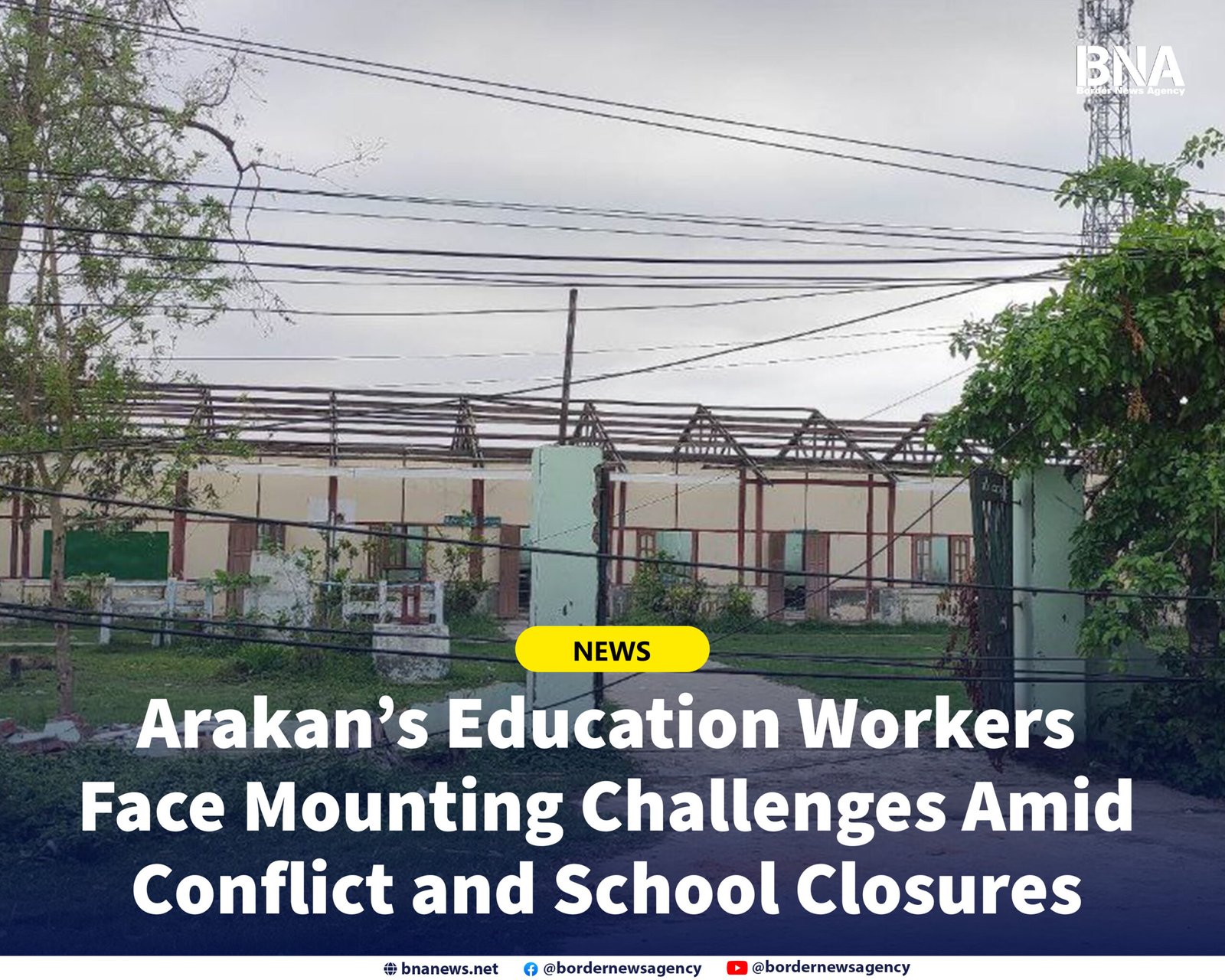Border News Agency
Kyauktaw, June 29.
Education staff in Arakan say they are facing difficulties in their livelihoods and urgently need assistance.
Since the start of the decisive conflict in Arakan, basic education schools have been forced to close.
As a result, education workers have lost their salaries and benefits, leading to serious challenges in sustaining their daily lives.
“As an education staff member who relies solely on my salary, not receiving it now has caused serious difficulties in providing for my family. With rising prices across the board, we are struggling not only with food and clothing but also with health issues. I don’t even know how to express the situation,” said an education staff member from Kyauktaw Township in an interview with Border News Agency.
Those education staff say that, lacking sufficient resources, they have had to rely on loans and borrowings to manage and sustain their livelihoods as best as they can.
“I can’t keep sitting around without my salary anymore. I have to buy goods on credit from traders and then try to sell them to make ends meet. It’s not easy. As a teacher, I only know how to teach reading and writing—I don’t know how to trade or sell, so I’m just facing losses. I’ve even seen some former teachers selling vegetables and produce in the market,” said a former education staff member from Kyauktaw Township in an interview with Border News Agency.
Some staff members say that education workers under the Arakan National Education Department of the Arakan People’s Revolutionary Government are struggling to cope with various difficulties due to not receiving their salaries.
The Arakan National Education Department of the Arakan People’s Revolutionary Government says that education staff are facing various hardships due to not receiving their salaries.
In townships still under the junta control, schools have reopened, but education staff attending and teaching at these schools say they are worried about their safety and security.
Teachers serving in Kyaukphru say that because fighting has blocked roads and travel routes, they have been unable to perform their duties and therefore have not received their salaries.
“Due to difficulties with road and communication access, we are unable to perform our duties. Even though we asked the township education officer to open the routes so we could get there, he said the military has closed the roads, so we can’t go. They told us to come on our own, but getting there is not easy. We are also worried about attending school amid intense fighting,” said a teacher from Kyauktaw Township in an interview with Border News Agency.
Education staff say that due to school closures caused by fighting in Arakan, those working in areas controlled by the Arakan Army were ordered by the Junta’s State Education Office on May 23 of last year to relocate to military junta-controlled areas and properly resume their duties at functioning schools.
However, education staff say that teachers who did not report to work within the designated period had their positions suspended and their salaries cut by the Myanmar junta.
They also report that because the junta has been deliberately bombing schools in areas controlled by the Arakan Army, the schools remain closed and cannot be reopened.
Because schools cannot reopen, Arakanese teachers are not receiving their salaries, making it increasingly difficult for them to sustain their livelihoods.
Although there are over three thousand basic education schools in the Arakan region, nearly all of them remain closed, according to local residents.






